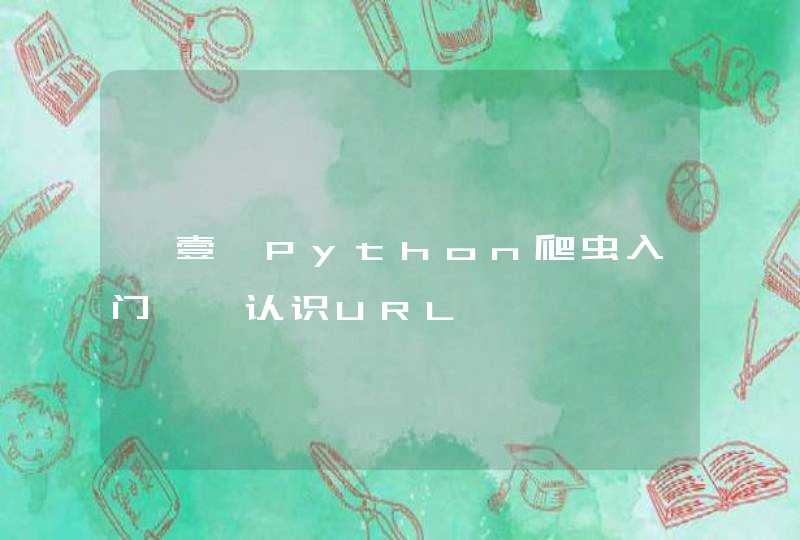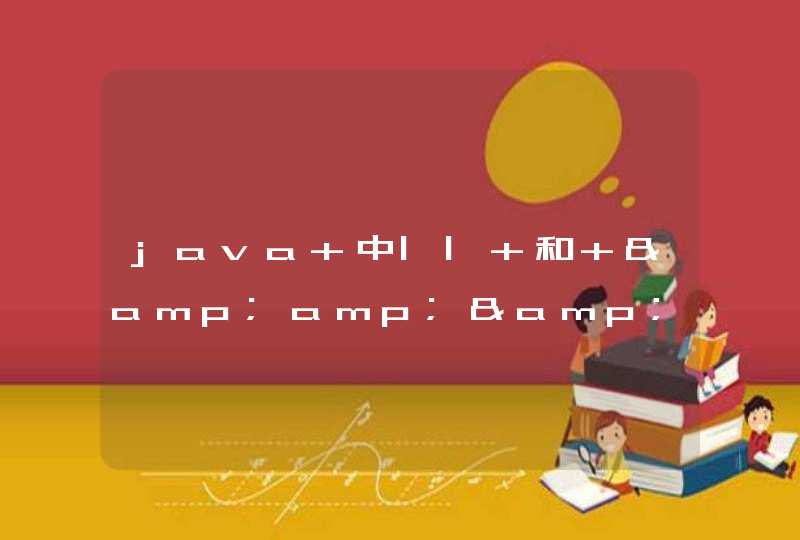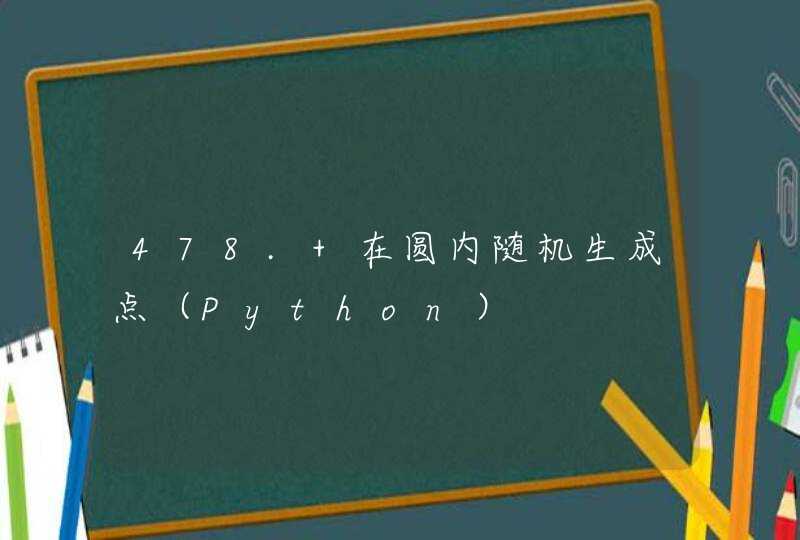
#include<stdio.h>
void change(char *s)
{
/******请在下方加入代码******/
int i = 0
while(s[i++] != '\0')
{
printf("%c ",s[i])
if(s[i-1] == ' ')
{
if(s[i]>96 &&s[i]<122)
{
s[i] -= 32
}
}
}
/******请在上方加入代码******/
}
void main(){
char str[100]
gets(str)
change(str)
printf("经过处理的英文句子:\n")
puts(str)
}
执行结果如下:
请输入英文句子:
Actions speak louder than words
经过处理的英文句子:
Actions speak louder than words
Press any key to continue
1.for(i1=0i1<ni1++)for(i2=ni2>0i2--)
sum+=a[i1][i1]*a[i1][i2]
2.我用语法生成器生成的c:
/* A lexical scanner generated by flex */
/* Scanner skeleton version:
* $Header: /home/daffy/u0/vern/flex/RCS/flex.skl,v 2.85 95/04/24 10:48:47 vern Exp $
*/
#define FLEX_SCANNER
#define YY_FLEX_MAJOR_VERSION 2
#define YY_FLEX_MINOR_VERSION 5
#include <stdio.h>
/* cfront 1.2 defines "c_plusplus" instead of "__cplusplus" */
#ifdef c_plusplus
#ifndef __cplusplus
#define __cplusplus
#endif
#endif
#ifdef __cplusplus
#include <stdlib.h>
#include <unistd.h>
/* Use prototypes in function declarations. */
#define YY_USE_PROTOS
/* The "const" storage-class-modifier is valid. */
#define YY_USE_CONST
#else /* ! __cplusplus */
#if __STDC__
#define YY_USE_PROTOS
#define YY_USE_CONST
#endif /* __STDC__ */
#endif /* ! __cplusplus */
#ifdef __TURBOC__
#pragma warn -rch
#pragma warn -use
#include <io.h>
#include <stdlib.h>
#define YY_USE_CONST
#define YY_USE_PROTOS
#endif
#ifdef YY_USE_CONST
#define yyconst const
#else
#define yyconst
#endif
#ifdef YY_USE_PROTOS
#define YY_PROTO(proto) proto
#else
#define YY_PROTO(proto) ()
#endif
/* Returned upon end-of-file. */
#define YY_NULL 0
/* Promotes a possibly negative, possibly signed char to an unsigned
* integer for use as an array index. If the signed char is negative,
* we want to instead treat it as an 8-bit unsigned char, hence the
* double cast.
*/
#define YY_SC_TO_UI(c) ((unsigned int) (unsigned char) c)
/* Enter a start condition. This macro really ought to take a parameter,
* but we do it the disgusting crufty way forced on us by the ()-less
* definition of BEGIN.
*/
#define BEGIN yy_start = 1 + 2 *
/* Translate the current start state into a value that can be later handed
* to BEGIN to return to the state. The YYSTATE alias is for lex
* compatibility.
*/
#define YY_START ((yy_start - 1) / 2)
#define YYSTATE YY_START
/* Action number for EOF rule of a given start state. */
#define YY_STATE_EOF(state) (YY_END_OF_BUFFER + state + 1)
/* Special action meaning "start processing a new file". */
#define YY_NEW_FILE yyrestart( yyin )
#define YY_END_OF_BUFFER_CHAR 0
/* Size of default input buffer. */
#define YY_BUF_SIZE 16384
typedef struct yy_buffer_state *YY_BUFFER_STATE
extern int yyleng
extern FILE *yyin, *yyout
#define EOB_ACT_CONTINUE_SCAN 0
#define EOB_ACT_END_OF_FILE 1
#define EOB_ACT_LAST_MATCH 2
/* The funky do-while in the following #define is used to turn the definition
* int a single C statement (which needs a semi-colon terminator). This
* avoids problems with code like:
*
* if ( condition_holds )
* yyless( 5 )
* else
* do_something_else()
*
* Prior to using the do-while the compiler would get upset at the
* "else" because it interpreted the "if" statement as being all
* done when it reached the '' after the yyless() call.
*/
/* Return all but the first 'n' matched characters back to the input stream. */
#define yyless(n) \
do \
{ \
/* Undo effects of setting up yytext. */ \
*yy_cp = yy_hold_char\
yy_c_buf_p = yy_cp = yy_bp + n - YY_MORE_ADJ\
YY_DO_BEFORE_ACTION/* set up yytext again */ \
} \
while ( 0 )
#define unput(c) yyunput( c, yytext_ptr )
/* The following is because we cannot portably get our hands on size_t
* (without autoconf's help, which isn't available because we want
* flex-generated scanners to compile on their own).
*/
typedef unsigned int yy_size_t
struct yy_buffer_state
{
FILE *yy_input_file
char *yy_ch_buf /* input buffer */
char *yy_buf_pos /* current position in input buffer */
/* Size of input buffer in bytes, not including room for EOB
* characters.
*/
yy_size_t yy_buf_size
/* Number of characters read into yy_ch_buf, not including EOB
* characters.
*/
int yy_n_chars
/* Whether we "own" the buffer - i.e., we know we created it,
* and can realloc() it to grow it, and should free() it to
* delete it.
*/
int yy_is_our_buffer
/* Whether this is an "interactive" input sourceif so, and
* if we're using stdio for input, then we want to use getc()
* instead of fread(), to make sure we stop fetching input after
* each newline.
*/
int yy_is_interactive
/* Whether we're considered to be at the beginning of a line.
* If so, '^' rules will be active on the next match, otherwise
* not.
*/
int yy_at_bol
/* Whether to try to fill the input buffer when we reach the
* end of it.
*/
int yy_fill_buffer
int yy_buffer_status
#define YY_BUFFER_NEW 0
#define YY_BUFFER_NORMAL 1
/* When an EOF's been seen but there's still some text to process
* then we mark the buffer as YY_EOF_PENDING, to indicate that we
* shouldn't try reading from the input source any more. We might
* still have a bunch of tokens to match, though, because of
* possible backing-up.
*
* When we actually see the EOF, we change the status to "new"
* (via yyrestart()), so that the user can continue scanning by
* just pointing yyin at a new input file.
*/
#define YY_BUFFER_EOF_PENDING 2
}
static YY_BUFFER_STATE yy_current_buffer = 0
/* We provide macros for accessing buffer states in case in the
* future we want to put the buffer states in a more general
* "scanner state".
*/
#define YY_CURRENT_BUFFER yy_current_buffer
/* yy_hold_char holds the character lost when yytext is formed. */
static char yy_hold_char
static int yy_n_chars /* number of characters read into yy_ch_buf */
int yyleng
/* Points to current character in buffer. */
static char *yy_c_buf_p = (char *) 0
static int yy_init = 1 /* whether we need to initialize */
static int yy_start = 0/* start state number */
/* Flag which is used to allow yywrap()'s to do buffer switches
* instead of setting up a fresh yyin. A bit of a hack ...
*/
static int yy_did_buffer_switch_on_eof
void yyrestart YY_PROTO(( FILE *input_file ))
void yy_switch_to_buffer YY_PROTO(( YY_BUFFER_STATE new_buffer ))
void yy_load_buffer_state YY_PROTO(( void ))
YY_BUFFER_STATE yy_create_buffer YY_PROTO(( FILE *file, int size ))
void yy_delete_buffer YY_PROTO(( YY_BUFFER_STATE b ))
void yy_init_buffer YY_PROTO(( YY_BUFFER_STATE b, FILE *file ))
void yy_flush_buffer YY_PROTO(( YY_BUFFER_STATE b ))
#define YY_FLUSH_BUFFER yy_flush_buffer( yy_current_buffer )
YY_BUFFER_STATE yy_scan_buffer YY_PROTO(( char *base, yy_size_t size ))
YY_BUFFER_STATE yy_scan_string YY_PROTO(( yyconst char *str ))
YY_BUFFER_STATE yy_scan_bytes YY_PROTO(( yyconst char *bytes, int len ))
static void *yy_flex_alloc YY_PROTO(( yy_size_t ))
static void *yy_flex_realloc YY_PROTO(( void *, yy_size_t ))
static void yy_flex_free YY_PROTO(( void * ))
#define yy_new_buffer yy_create_buffer
#define yy_set_interactive(is_interactive) \
{ \
if ( ! yy_current_buffer ) \
yy_current_buffer = yy_create_buffer( yyin, YY_BUF_SIZE )\
yy_current_buffer->yy_is_interactive = is_interactive\
}
#define yy_set_bol(at_bol) \
{ \
if ( ! yy_current_buffer ) \
yy_current_buffer = yy_create_buffer( yyin, YY_BUF_SIZE )\
yy_current_buffer->yy_at_bol = at_bol\
}
#define YY_AT_BOL() (yy_current_buffer->yy_at_bol)
typedef unsigned char YY_CHAR
FILE *yyin = (FILE *) 0, *yyout = (FILE *) 0
typedef int yy_state_type
extern char *yytext
#define yytext_ptr yytext
static yy_state_type yy_get_previous_state YY_PROTO(( void ))
static yy_state_type yy_try_NUL_trans YY_PROTO(( yy_state_type current_state ))
static int yy_get_next_buffer YY_PROTO(( void ))
static void yy_fatal_error YY_PROTO(( yyconst char msg[] ))
/* Done after the current pattern has been matched and before the
* corresponding action - sets up yytext.
*/
#define YY_DO_BEFORE_ACTION \
yytext_ptr = yy_bp\
yyleng = (int) (yy_cp - yy_bp)\
yy_hold_char = *yy_cp\
*yy_cp = '\0'\
yy_c_buf_p = yy_cp
#define YY_NUM_RULES 4
#define YY_END_OF_BUFFER 5
static yyconst short int yy_accept[9] =
{ 0,
0,0,5,3,2,1,1,0
}
static yyconst int yy_ec[256] =
{ 0,
1,1,1,1,1,1,1,1,1,2,
1,1,1,1,1,1,1,1,1,1,
1,1,1,1,1,1,1,1,1,1,
1,1,1,1,1,1,1,1,1,1,
1,1,1,1,1,1,1,3,3,3,
3,3,3,3,3,3,3,1,1,1,
1,1,1,1,3,3,3,3,3,3,
3,3,3,3,3,3,3,3,3,3,
3,3,3,3,3,3,3,3,3,3,
1,1,1,1,1,1,3,3,3,3,
3,3,3,3,3,3,3,3,3,3,
3,3,3,3,3,3,3,3,3,3,
3,3,1,1,1,1,1,1,1,1,
1,1,1,1,1,1,1,1,1,1,
1,1,1,1,1,1,1,1,1,1,
1,1,1,1,1,1,1,1,1,1,
1,1,1,1,1,1,1,1,1,1,
1,1,1,1,1,1,1,1,1,1,
1,1,1,1,1,1,1,1,1,1,
1,1,1,1,1,1,1,1,1,1,
1,1,1,1,1,1,1,1,1,1,
1,1,1,1,1,1,1,1,1,1,
1,1,1,1,1,1,1,1,1,1,
1,1,1,1,1,1,1,1,1,1,
1,1,1,1,1,1,1,1,1,1,
1,1,1,1,1
}
static yyconst int yy_meta[4] =
{ 0,
1,1,2
}
static yyconst short int yy_base[10] =
{ 0,
0,0,5,6,6,0,0,6,2
}
static yyconst short int yy_def[10] =
{ 0,
8,1,8,8,8,9,9,0,8
}
static yyconst short int yy_nxt[10] =
{ 0,
4,5,6,7,8,3,8,8,8
}
static yyconst short int yy_chk[10] =
{ 0,
1,1,1,9,3,8,8,8,8
}
static yy_state_type yy_last_accepting_state
static char *yy_last_accepting_cpos
/* The intent behind this definition is that it'll catch
* any uses of REJECT which flex missed.
*/
#define REJECT reject_used_but_not_detected
#define yymore() yymore_used_but_not_detected
#define YY_MORE_ADJ 0
char *yytext
#line 1 "lex.l"
#define INITIAL 0
#line 2 "lex.l"
/*a lex program for counting the number of character, word and line in the input file*/
#include <stdio.h>
#include <string.h>
/*the line count*/
int iLineNo = 0
/*the character counter*/
int iCharNo = 0
/*the word counter*/
int iWordNo = 0
#line 372 "lex.yy.c"
/* Macros after this point can all be overridden by user definitions in
* section 1.
*/
#ifndef YY_SKIP_YYWRAP
#ifdef __cplusplus
extern "C" int yywrap YY_PROTO(( void ))
#else
extern int yywrap YY_PROTO(( void ))
#endif
#endif
#ifndef YY_NO_UNPUT
static void yyunput YY_PROTO(( int c, char *buf_ptr ))
#endif
#ifndef yytext_ptr
static void yy_flex_strncpy YY_PROTO(( char *, yyconst char *, int ))
#endif
#ifndef YY_NO_INPUT
#ifdef __cplusplus
static int yyinput YY_PROTO(( void ))
#else
static int input YY_PROTO(( void ))
#endif
#endif
#if YY_STACK_USED
static int yy_start_stack_ptr = 0
static int yy_start_stack_depth = 0
static int *yy_start_stack = 0
#ifndef YY_NO_PUSH_STATE
static void yy_push_state YY_PROTO(( int new_state ))
#endif
#ifndef YY_NO_POP_STATE
static void yy_pop_state YY_PROTO(( void ))
#endif
#ifndef YY_NO_TOP_STATE
static int yy_top_state YY_PROTO(( void ))
#endif
#else
#define YY_NO_PUSH_STATE 1
#define YY_NO_POP_STATE 1
#define YY_NO_TOP_STATE 1
#endif
#ifdef YY_MALLOC_DECL
YY_MALLOC_DECL
#else
#if __STDC__
#ifndef __cplusplus
#include <stdlib.h>
#endif
#else
/* Just try to get by without declaring the routines. This will fail
* miserably on non-ANSI systems for which sizeof(size_t) != sizeof(int)
* or sizeof(void*) != sizeof(int).
*/
#endif
#endif
/* Amount of stuff to slurp up with each read. */
#ifndef YY_READ_BUF_SIZE
#define YY_READ_BUF_SIZE 8192
#endif
/* Copy whatever the last rule matched to the standard output. */
#ifndef ECHO
/* This used to be an fputs(), but since the string might contain NUL's,
* we now use fwrite().
*/
#define ECHO (void) fwrite( yytext, yyleng, 1, yyout )
#endif
/* Gets input and stuffs it into "buf". number of characters read, or YY_NULL,
* is returned in "result".
*/
#ifndef YY_INPUT
#define YY_INPUT(buf,result,max_size) \
if ( yy_current_buffer->yy_is_interactive ) \
{ \
int c = '*', n\
for ( n = 0n <max_size &&\
(c = getc( yyin )) != EOF &&c != '\n'++n ) \
buf[n] = (char) c\
if ( c == '\n' ) \
buf[n++] = (char) c\
if ( c == EOF &&ferror( yyin ) ) \
YY_FATAL_ERROR( "input in flex scanner failed" )\
result = n\
} \
else if ( ((result = fread( buf, 1, max_size, yyin )) == 0) \
&&ferror( yyin ) ) \
YY_FATAL_ERROR( "input in flex scanner failed" )
#endif
/* No semi-colon after returncorrect usage is to write "yyterminate()" -
* we don't want an extra '' after the "return" because that will cause
* some compilers to complain about unreachable statements.
*/
#ifndef yyterminate
#define yyterminate() return YY_NULL
#endif
/* Number of entries by which start-condition stack grows. */
#ifndef YY_START_STACK_INCR
#define YY_START_STACK_INCR 25
#endif
/* Report a fatal error. */
#ifndef YY_FATAL_ERROR
#define YY_FATAL_ERROR(msg) yy_fatal_error( msg )
#endif
/* Default declaration of generated scanner - a define so the user can
* easily add parameters.
*/
#ifndef YY_DECL
#define YY_DECL int yylex YY_PROTO(( void ))
#endif
/* Code executed at the beginning of each rule, after yytext and yyleng
* have been set up.
*/
#ifndef YY_USER_ACTION
#define YY_USER_ACTION
#endif
/* Code executed at the end of each rule. */
#ifndef YY_BREAK
#define YY_BREAK break
#endif
#define YY_RULE_SETUP \
YY_USER_ACTION
YY_DECL
{
register yy_state_type yy_current_state
register char *yy_cp, *yy_bp
register int yy_act
#line 15 "lex.l"
#line 521 "lex.yy.c"
if ( yy_init )
{
yy_init = 0
#ifdef YY_USER_INIT
YY_USER_INIT
#endif
if ( ! yy_start )
yy_start = 1/* first start state */
if ( ! yyin )
yyin = stdin
if ( ! yyout )
yyout = stdout
if ( ! yy_current_buffer )
yy_current_buffer =
yy_create_buffer( yyin, YY_BUF_SIZE )
yy_load_buffer_state()
}
while ( 1 ) /* loops until end-of-file is reached */
{
yy_cp = yy_c_buf_p
/* Support of yytext. */
*yy_cp = yy_hold_char
/* yy_bp points to the position in yy_ch_buf of the start of
* the current run.
*/
yy_bp = yy_cp
yy_current_state = yy_start
yy_match:
do
{
register YY_CHAR yy_c = yy_ec[YY_SC_TO_UI(*yy_cp)]
if ( yy_accept[yy_current_state] )
{
yy_last_accepting_state = yy_current_state
yy_last_accepting_cpos = yy_cp
}
while ( yy_chk[yy_base[yy_current_state] + yy_c] != yy_current_state )
{
yy_current_state = (int) yy_def[yy_current_state]
if ( yy_current_state >= 9 )
yy_c = yy_meta[(unsigned int) yy_c]
}
yy_current_state = yy_nxt[yy_base[yy_current_state] + (unsigned int) yy_c]
++yy_cp
}
while ( yy_base[yy_current_state] != 6 )
yy_find_action:
yy_act = yy_accept[yy_current_state]
if ( yy_act == 0 )
{ /* have to back up */
yy_cp = yy_last_accepting_cpos
yy_current_state = yy_last_accepting_state
yy_act = yy_accept[yy_current_state]
}
YY_DO_BEFORE_ACTION
do_action: /* This label is used only to access EOF actions. */
switch ( yy_act )
{ /* beginning of action switch */
case 0: /* must back up */
/* undo the effects of YY_DO_BEFORE_ACTION */
*yy_cp = yy_hold_char
yy_cp = yy_last_accepting_cpos
yy_current_state = yy_last_accepting_state
goto yy_find_action
case 1:
YY_RULE_SETUP
#line 16 "lex.l"
{iWordNo++iCharNo += strlen(yytext)}
YY_BREAK
case 2:
YY_RULE_SETUP
#line 17 "lex.l"
{iLineNo++}
YY_BREAK
case 3:
YY_RULE_SETUP
#line 18 "lex.l"
{iCharNo++}
YY_BREAK
case 4:
YY_RULE_SETUP
#line 19 "lex.l"
ECHO
YY_BREAK
#line 624 "lex.yy.c"
case YY_STATE_EOF(INITIAL):
yyterminate()
case YY_END_OF_BUFFER:
{
/* Amount of text matched not including the EOB char. */
int yy_amount_of_matched_text = (int) (yy_cp - yytext_ptr) - 1
/* Undo the effects of YY_DO_BEFORE_ACTION. */
*yy_cp = yy_hold_char
if ( yy_current_buffer->yy_buffer_status == YY_BUFFER_NEW )
{
/* We're scanning a new file or input source. It's
* possible that this happened because the user
* just pointed yyin at a new source and called
* yylex(). If so, then we have to assure
* consistency between yy_current_buffer and our
* globals. Here is the right place to do so, because
* this is the first action (other than possibly a
* back-up) that will match for the new input source.
*/
yy_n_chars = yy_current_buffer->yy_n_chars
yy_current_buffer->yy_input_file = yyin
yy_current_buffer->yy_buffer_status = YY_BUFFER_NORMAL
}
/* Note that here we test for yy_c_buf_p "<=" to the position
* of the first EOB in the buffer, since yy_c_buf_p will
* already have been incremented past the NUL character
* (since all states make transitions on EOB to the
* end-of-buffer state). Contrast this with the test
* in input().
*/
if ( yy_c_buf_p <= &yy_current_buffer->yy_ch_buf[yy_n_chars] )
{ /* This was really a NUL. */
yy_state_type yy_next_state
yy_c_buf_p = yytext_ptr + yy_amount_of_matched_text
yy_current_state = yy_get_previous_state()
/* Okay, we're now positioned to make the NUL
* transition. We couldn't have
* yy_get_previous_state() go ahead and do it
* for us because it doesn't know how to deal
* with the possibility of jamming (and we don't
* want to build jamming into it because then it
* will run more slowly).
*/
yy_next_state = yy_try_NUL_trans( yy_current_state )
yy_bp = yytext_ptr + YY_MORE_ADJ
if ( yy_next_state )
{
/* Consume the NUL. */
yy_cp = ++yy_c_buf_p
yy_current_state = yy_next_state
goto yy_match
}
else
{
yy_cp = yy_c_buf_p
goto yy_find_action
}
}
else switch ( yy_get_next_buffer() )
{
case EOB_ACT_END_OF_FILE:
{
yy_did_buffer_switch_on_eof = 0
if ( yywrap() )
{
/* Note: because we've taken care in
* yy_get_next_buffer() to have set up
* yytext, we can now set up
* yy_c_buf_p so that if some total
* hoser (like flex itself) wants to
* call the scanner after we return the
* YY_NULL, it'll still work - another
* YY_NULL will get returned.
*/
yy_c_buf_p = yytext_ptr + YY_MORE_ADJ
yy_act = YY_STATE_EOF(YY_START)
goto do_action
}
else
{
if ( ! yy_did_buffer_switch_on_eof )
YY_NEW_FILE
}
break
}
case EOB_ACT_CONTINUE_SCAN:
yy_c
试编写代码如下:
#include<stdio.h>#include<string.h>
#include<ctype.h>
struct word
{
char str[30] //单词
int num //单词出现的次数
}words[500]
int sum
void chuli(char s[])
{
int i,j
int flag=0
for(i=0i<=sumi++)
{
if(strcmpi(words[i].str,s)==0)
{
words[i].num++
flag=1
}
}
if(flag==0)
{
strcpy(words[sum].str,s)
words[sum].num++
sum++
}
}
void paixu1()
{
int i,j
struct word a
for(i=0i<sumi++)
{
for(j=i+1j<sumj++)
if(strcmp(words[i].str,words[j].str) > 0)
{
a=words[j]
words[j]=words[i]
words[i]=a
}
}
}
void paixu2()
{
int i,j
struct word a
for(i=0 i<sum ++i)
{
for(j=sum-1 j>i --j)
{
if(words[j].num>words[j-1].num)
{
a=words[j]
words[j]=words[j-1]
words[j-1]=a
}
}
}
}
int main()
{
char s[30]
int imax,istart,iend,i,j,flag=0
char str[] = "The president told the audit authorities to keep their thoughts and actions in line with the CPC Central Committee, resolutely safeguard the centralized and unified leadership of the committee and implement the requirements of the committee."
char delims[] = " "
char *sword = NULL
sum=0
for(i=0i<500i++)
words[i].num=0
sword = strtok(str, delims)
while( sword != NULL ) {
sscanf(sword,"%[a-zA-Z]",s)
strlwr(s)
chuli(s)
sword = strtok( NULL, delims )
}
printf("该文章共有:%d个单词\n",sum)
paixu1()
printf("\n按单词字典顺序升序排列:\n")
for(i=0i<sumi++)
printf("%s, %d\n",words[i].str,words[i].num)
paixu2()
printf("\n按出现次数降序排列:\n")
for(i=0i<sumi++)
printf("%s, %d\n",words[i].str,words[i].num)
return 0
}
实际运行截图:



































































